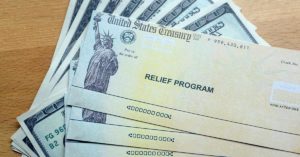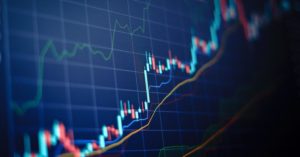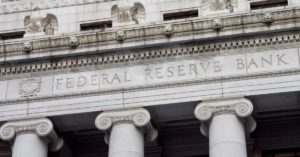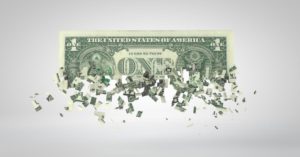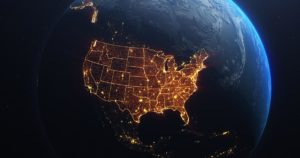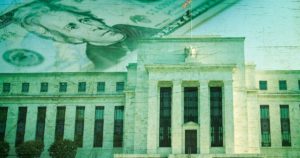The identity of a people often shapes the nature and trajectory of their government. In England, a deep-rooted belief in individual liberty has profoundly influenced the nation’s legal and cultural institutions, shaping English society from the early Middle Ages through the Industrial Revolution. This identity—forged through centuries of struggle and self-definition—established a legacy of individual rights, due process, and a balanced approach to law and order. The Magna Carta of 1215, for instance, set a groundbreaking precedent by binding even the king to the rule of law and affirming that Englishmen were “free-born.” This commitment was further solidified by the development of English common law, which emphasized justice and protection for all citizens,
Read More »Articles by Vibhu Vikramaditya
Navigating the Slippery Slope: How Hoover’s Interventions Paved the Way for the Great Depression
April 16, 2024One of the great myths of US history is that Herbert Hoover was a laissez-faire president. In truth, he intervened in the economy more than any of his predecessors, creating the crisis known as the Great Depression. His successor made things even worse.
[embedded content]
Tags: Featured,newsletter
Read More »Navigating the Slippery Slope: How Hoover’s Interventions Paved the Way for the Great Depression
March 26, 2024Herbert Hoover’s presidency is often mythically mischaracterized as a period of strict nonintervention in the economy. However, it was in fact defined by a series of economic maneuvers that not only deviated from laissez-faire ideology, but also significantly contributed to the onset of the Great Depression. He initiated his term in 1929 with a proactive push by establishing the Federal Farm Board and later the Reconstruction Finance Corporation. These testified to his interventionist approach, aimed at countering economic instability with federal support that ranged from agricultural price supports to protective tariffs and substantial public works investments. These policies failed to grasp the underlying economic frailties that, combined with a long recession
Read More »Why Argentina Needs Free Cities
January 5, 2024As the libertarian anarchocapitalist Javier Milei ascends to the Argentinian presidency, the parting of the ominous clouds of socialism has brought about the rising sun of libertarianism on the South American continent. The Argentine legislative system, consisting of the Senate and the Chamber of Deputies, is designed to bolster democratic governance and accountability.
However, its inherent structure often leads to impasses, particularly with contentious reforms. The presidency of Carlos Menem from 1989 to 1999 marked a pivotal turn toward classical liberalism, implementing broad changes such as widespread privatization, deregulation, and the 1991 convertibility plan, which pegged the Argentine peso to the US dollar. Initially, these reforms attracted foreign
What the Technocrats Call “Economic Stability” Is Really Just Inflation
November 10, 2023There’s a growing palpable sense of optimism among many economists and journalists that the United States economy is heading toward a growth phase while avoiding recession. They are in turn lauding the Federal Reserve for its strategic handling of inflation—with economic growth and low unemployment rates—as well as praising the efficacy of the Biden administration in reining in prices through social pressure on profit-making and through increases in production via large subsidy grants, along with the stimulus checks that have been distributed generously through various legislative acts.
This optimism and belief in the ability of the government to deal with economic problems come right after experiencing a severe inflationary crisis over the last three years,
How Markets Self-Corrected during the 1819 and 1919–21 Recessions
May 23, 2023As the first signs of an economic tempest move through the United States—an alarming increase in bank failures, a surge in unemployment claims, and a troubling decline in retail sales—we find ourselves perched on the edge of a deep recession. Staring into this uncertain abyss, the self-designated guardians of our financial destiny, the Federal Reserve and the US government, are confronted with a monumental task. When the recession bells toll, how will they respond?
Will the Federal Reserve and the Biden administration again disrupt the market’s natural rhythms through rapid interest rate cuts, quantitative easing (QE), and excessive government spending? These interventionist measures, though designed to cushion economic downturns, distort market signals, leading
The Failure of the Federal Reserve: The Covid Boom and Unnecessary Intervention
May 4, 2023After years of inflationary intervention, the Federal Reserve has no more rabbits to pull out of the hat.
Original Article: "The Failure of the Federal Reserve: The Covid Boom and Unnecessary Intervention"
[embedded content]
Tags: Featured,newsletter
Read More »The Failure of the Federal Reserve: The Covid Boom and Unnecessary Intervention
April 19, 2023The Federal Reserve’s failure to meet its own policy goals of price stability and growth has become increasingly evident in the current economic situation in the United States. The country is now facing recessionary fears after experiencing historic inflation due to the misinterpretation of the causes of the Great Depression. The perverse effects of expansionary monetary policies also reflect the failure of the institutional economic position which regards the Federal Reserve as the key benefactor of growth, stability, and security.
Business Contraction and Laissez-Faire Policy
The US government’s response to covid both influenced other governments to lock down their economies and restrict the movement of people, and the cancellation of economic
Do Falling Prices Cause or Predict a Recession?
December 7, 2022In the midst of excessive US economic and geopolitical uncertainties due to rampant inflation and the continuing Russian invasion of Ukraine, the 7.7 percent October inflation report comes as a small relief. The unemployment rate touched 3.7 percent in October, remaining near the 3.5 percent prepandemic level and slightly above the 3.4 percent natural rate of unemployment of the fourth quarter of 2021.
The Covid Inflation
The general increase in price levels, most monetary economists believe, comes directly from an increase in money supply through a rise in the rate of nominal spending (nominal gross domestic product [NGDP]) above the nominal trend required for full employment or potential GDP. Above that nominal trend, the economy becomes “overheated,” and prices
Federalism, Not Centralization, Is the Way out of the Current Conflicts
July 10, 2022The overturning of Roe v. Wade is a historic decision, upholding the highest principle of a republic. A republic is born through freedom of association in the same manner as individuals band together to form a family, families band together to make a community, and communities band together to make a society. In an ideal situation of law-based governance, the law givers and the law abiders must be the same, as it is only then that voluntary subservience to the law and the protection of the law abiders’ interests can come to fruition.
Now, what is to be done if two families can’t reconcile on a matter that ails both to a great extent? the answer is enshrined in the nature of the United States government: both can go their separate ways!
Therefore, it follows that
Markets Promote Real Equality Much More Than Progressive (and Conservative) Critics Claim
June 27, 2022The economy consists of a huge chain of the division of labor that is interlocked to such a limit where there exists hardly any single individual or firm that produces the whole of the product alone. This is famously illustrated in the essay “I, Pencil,” by Leonard Read.
Each element of this complex chain is a firm that consists of many individuals, therefore one of the first questions one might ask is, “Why do individuals engage in these complex economic activities?” The answer to this fundamental question lies in the understanding that individuals undertake any economic activity with the expectation that it would make them better off than their present situation.
Individuals, thus, in regard to their own interests engage in voluntary cooperation in the market
Is There a Case for the Pre-1914 Gold Standard? Yes, if You Believe Inflation is a Bad Thing
April 18, 2022The Russian central bank recently announced that it will stop buying gold at a fixed rate and will instead buy them at the negotiated rate from banks. Following the numerous sanctions which were imposed on Russia. The Ruble had fallen tremendously against the US dollar, to get out of such a situation it had announced that it would buy gold at a fixed price of 5,000 rubles a gram until June 30. Since that announcement, the ruble has strengthened sharply against the dollar for over one month. Five thousand rubles was worth around $52 on March 25 and around $63 on Thursday.
The mechanism which led to the increase was to allow the markets to play themselves out, in order to combat sanctions, they asked the nations to transact in their currency which, due to the
Putin’s Inflation? Homegrown Modern Monetary Theory Is to Blame
April 6, 2022Prices of goods and services in the economy seem to be going through the roof, and both consumers and producers suffer from the falling value of their money. Unfortunately, the public turns to politicians in Washington and economists around the world for answers.
While president Joe Biden and his administration call it Putin’s price hike, the US Bureau of Labor Statistics reports that over the last twelve months, the all items index increased 7.9 percent before seasonal adjustment. The reported twelve-month increase has been steadily rising and is now the largest since the period ending January 1982. The all items less food and energy index rose 6.4 percent, the largest twelve-month change since the period ending August 1982. The energy index rose 25.6 percent
Central Banks: Who Needs Them? No One
April 2, 2022As the Federal Reserve hikes its lending rate to a range of 0.25–0.50 percent, murmurs are heard around the world, with financial pundits predicting doom due to the increased pressures imposed on the cost structures of firms that are recovering from the pandemic lockdowns. The Federal Reserve is leader of the group of central banks around the world that are ostensibly directed by their respective countries to pursue stability and smooth functioning of their economies.
The alleged legitimacy of central banks rests on three fundamental goals that central banks around the world share. The first goal is price stability, which is the belief that central banks should expand and contract the money supply in relation to actual demand and supply pressures from the economy.
Markets and Private Property, Not Government, Protect the Environment
March 26, 2022Each century presents its unique set of problems for lovers of freedom, peace, and prosperity. While the great vanguards of liberty in the twentieth century dealt with the looming shadow of centralization and were engaged in a battle against socialists and statists who argued for centralization and adjudication of individual liberty for the sake of universal material opulence, free markets with the fall of the curtain on the twentieth century have definitely shown that universal material opulence is only compatible with individual economic freedom and liberty.
Despite this great victory, the looming shadow of centralization in pursuit of eradicating economic freedom and individual liberty has come back to haunt us again at the dawn of our twenty-first century.


